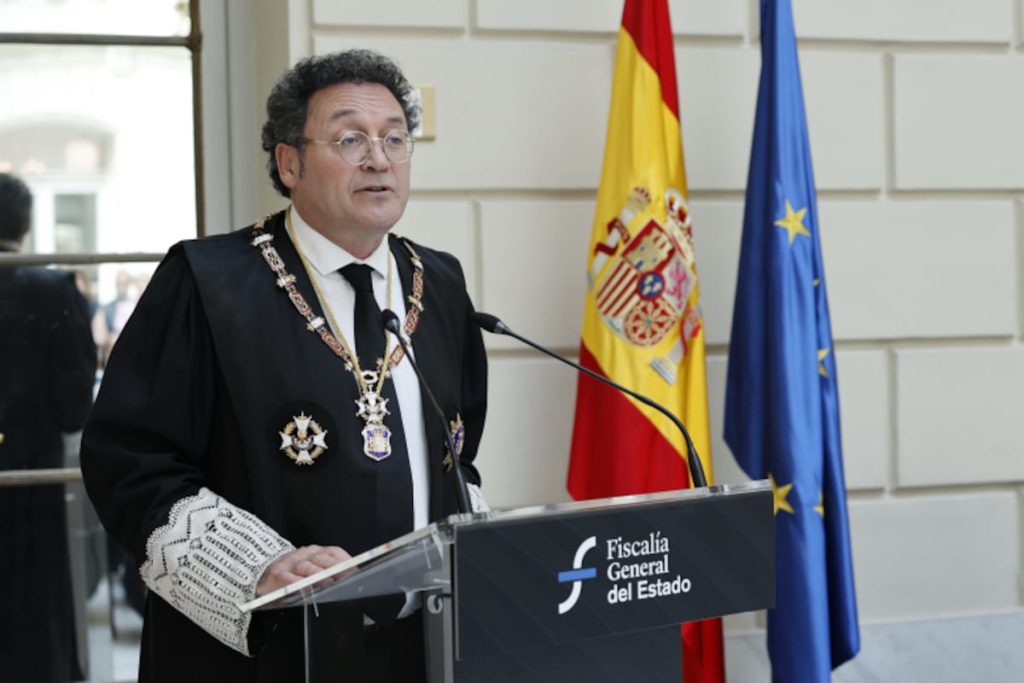The Attorney General of the State, Álvaro García Ortiz, has requested the removal of four out of the five judges of the Supreme Court who have to decide on his continuation at the head of the public ministry. The prosecutor has filed a challenge against the judges who, last November, saw Dolores Delgado’s promotion to the highest category of the career as an exercise of “abuse of power” by the head of the Prosecutor’s Office to benefit his predecessor. These judges are the same ones who, in principle, now have to resolve the appeal filed by a judicial association against Garcia Ortiz’s renewal as Attorney General, but the head of the Prosecution considers that, after that first sentence, they are not impartial to rule on his appointment. The recusal will be resolved by the so-called Room 61 of the Supreme Court, composed of the five presidents of the chambers and the oldest and newest judges of each of them. The challenge raised by García Ortiz, is a new episode of growing tension between the Attorney General and the Supreme Court.
The recused judges are Pablo Lucas, Luis Díez-Picazo, Antonio Jesús Fonseca-Herrero, and José Luis Requero, members of the Fourth Section of the Administrative Litigation Chamber. In the case of Requero, in addition to considering him contaminated like the rest of his colleagues by the sentence on Delgado, García Ortiz cites an article published in La Razón on that same day in November in which this judge, known for conservative tendencies, wrote that the Constitutional Court and the Attorney General’s Office are “subservient.” In the deliberation on Tuesday that annulled Delgado’s appointment as head of the Memory Democratic Office, Judge Pilar Teso also participated, who was the only one who voted against. García Ortiz does not challenge her because she was not part of the court that saw “abuse of power” in Delgado’s promotion.
García Ortiz has raised his challenge on a personal basis, so he will not be assisted by the State Attorney’s Office. The judges now have to decide whether they see reasons to step aside from the case, a possibility that judicial sources consulted consider unlikely. If the judges do not step aside, the decision will be in the hands of the Special Chamber of Article 61 of the Supreme Court, named after the article of the Organic Law of the Judiciary (LOPJ) which regulates it and is responsible for resolving recusal incidents that affect the President of the Supreme Court, the Presidents of the Chambers, or more than two judges of a chamber. The appeal of APIF, the minority association of the career, against the appointment of the Attorney General is based on the Government appointing him against the criteria of the General Council of the Judiciary (CGPJ), which, in an unprecedented decision, had considered García Ortiz “not suitable” for the position. The challenge is supported in large part by the first sentence against Delgado’s promotion signed by the four recused judges, who harshly criticized García Ortiz.
The current situation reflects the growing tension between the Attorney General and the Supreme Court, with various challenges and appeals being filed. The decision on whether the recused judges will step aside or not will have significant implications for García Ortiz’s continuity in his position. The legal process is ongoing, with different judicial bodies involved in resolving the conflicts. Ultimately, the resolution of these challenges will have broader implications for the functioning and independence of the judiciary system in the country. It remains to be seen how the situation unfolds and the decisions made by the relevant judicial bodies in the coming days.















